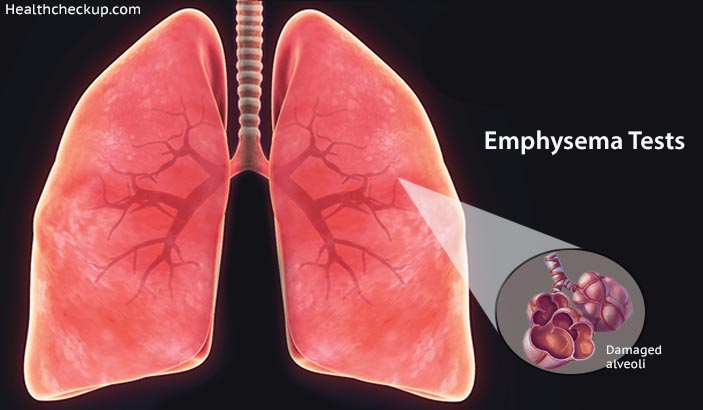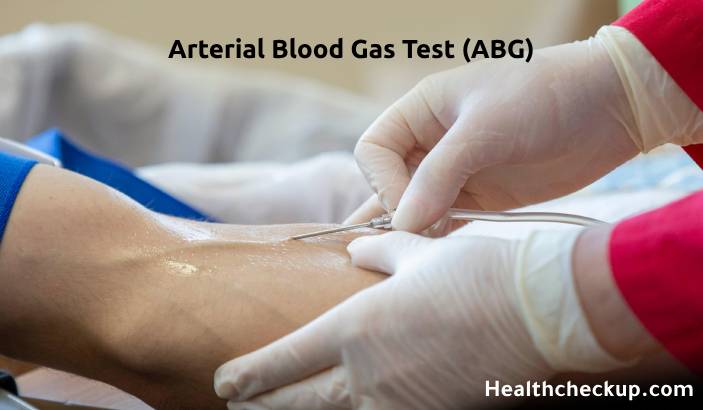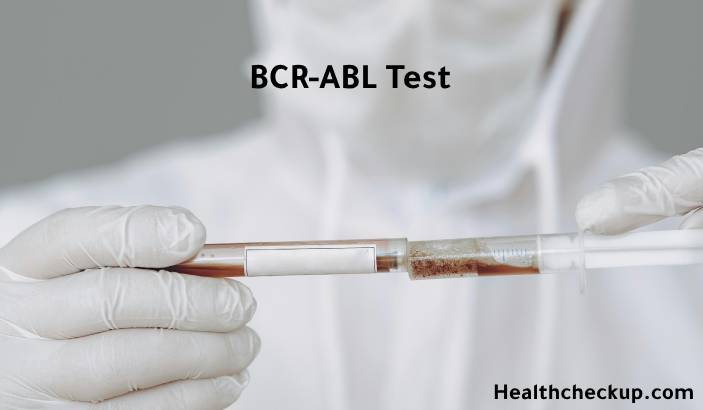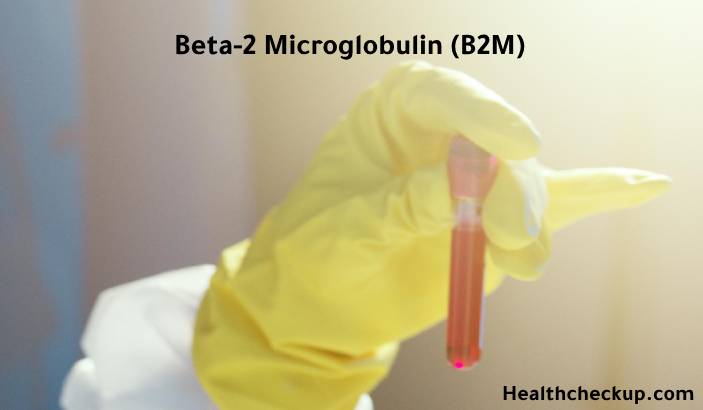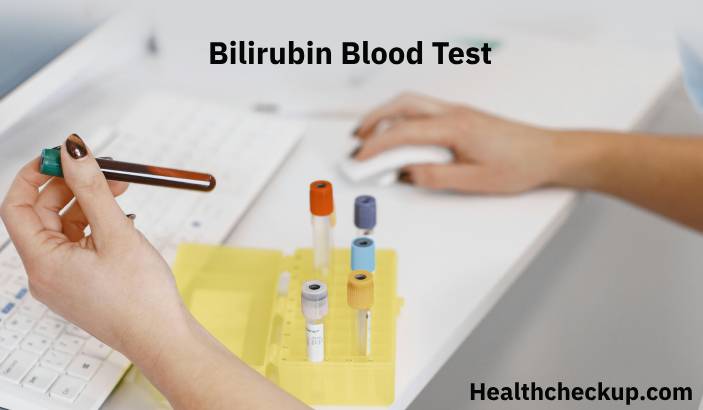What Is Emphysema?
Emphysema is a disease associated with the lungs, respiratory system. It is actually a type of COPD (Chronic Obstructive Pulmonary Disease). COPD is divided into two subtypes.
2. Emphysema
Emphysema is the pathological term. It is defined as an abnormal permanent enlargement of air spaces distal to the terminal bronchioles, accompanied by the destruction of alveolar walls and without obvious fibrosis. So it is irreversible and life long disease.
Types of Emphysema
It is broadly divided into two subtypes.
- Panacinar (Panlobular)
- Centriacinar (Centrilobular)
Causes of Emphysema
- Tobacco Smoking – Tobacco smoking is the most common cause worldwide for emphysema. 90% of emphysema patients are smokers. Not all smokers develop this disease but genetically susceptible smokers will develop this disease.
- Recurrent childhood respiratory tract infection
- Exposure to passive tobacco smoking
- Air pollution
- Occupational dust (mineral dust, cotton dust etc)
- Inhaled chemicals
- Low body weight
- Alpha 1 antitrypsin deficiency (AAT deficiency) etc.
Symptoms of Emphysema
There are two main symptoms of emphysema
-
- A Cough – Patient is having a chronic cough with early morning sputum expectoration. It is also known as smoker’s cough.
- Shortness Of Breath – It is also known as breathlessness or dyspnea. Initially patient has shortness of breath on exertion but in later stages of emphysema, the patent has shortness of breath even with rest or minimal exertion (walking few steps).
- Hemoptysis (blood in sputum)
- Chest pain
- Weight loss
- Decreased appetite
- Fatigue
- Anxiety, depression
- Sleep disturbances etc.
Tests For Emphysema
We can broadly divide tests for Emphysema or Chronic Bronchitis in 3 parts.
- Blood Tests for Emphysema
- Pulmonary Function Test
- Imaging Tests
1. Blood Tests For Emphysema
- Emphysema is not diagnosed by blood test except if it is due to AAT deficiency. So if the patient is Non-smoker and emphysema runs in family then get done AAT (alpha 1 Antitrypsin) levels.
- Other routine blood tests like CBC (Complete Blood Count), Creatinine, Sugar Estimation, and Liver Function Tests are useful in emphysema.
2. Pulmonary Function Test (PFT)
- These are the mainstay of investigation in the diagnosis of emphysema.
- It will not only diagnose emphysema but also tell us severity and grading of emphysema. And this is very important in guiding treatment and prognosis.
- Amongst PFT, Spirometry is best for emphysema. Now let’s talk in detail about spirometry.
Preparation
You will be advised to come in the morning after light breakfast. Wear comfortable clothes. Don’t take your inhalers or any oral medication 24 hours prior to the test. No need for fasting just avoid a heavy meal before the test.
Procedure
You need to sit down and be relax at the time of the test. There will be one breathing tube which is connected to the PFT machine. The technician will ask you about your height weight, sex, race smoking habit, number of cigarette in a day etc. All these are very important to get Predicted values. The technician will enter all these data in PFT machine. The machine will calculate the predicted value (normal value). Now you need to apply nose clip and put a breathing tube into the mouth. Better to avoid any leakage so hold tightly through lips. Now you need to do normal breath in and out through this tube in the PFT machine. After 2-3 normal breaths, the technician will ask you to breathe in fully and blow out air as forcefully and as long as you can. Your this effort will give certain values and graph on PFT machine.
You need to give three efforts and PFT machine will consider one from your best effort.
Interpretation And Results
Your breathing effort in PFT machine will give you ‘Performed Values ‘. The machine will calculate and compare these values to ‘Predicted values ‘.
FEV1(Forced Expiratory Volume in 1 second), FVC (Forced Vital Capacity) and FEV1 /FVC ratio are needed for the diagnosis of emphysema.
Emphysema causes a reduction in FEV1, FVC and FEV1 /FVC ratio. So the diagnosis of emphysema is made when the FEV1 /FVC ratio is less than 80% with above-mentioned symptoms.
Emphysema is considered as mild if FEV1 is between 60-80%, moderate if it is 45-60%, severe if it is between 30-45% and very severe if FEV1 is less than 30% predicted.
Duration Of Spirometry
This test lasts for 10-15 minutes. So it is a quick and easy test to diagnose emphysema.
3. Imaging Tests
1. Chest X-Ray – It is a basic test. In emphysema, it shows hyperinflated lung fields, widened rib spaces, tear-shaped heart, flattened diaphragm.
2. CT Thorax – Apart from Chest x-ray findings, CT additionally tells us about the type of emphysema whether Panacinar or Centriacinar. It also identifies if any bulla or bleb is there.
[Read – Best Ways To Quit Smoking]
Treatment of Emphysema
1. Non-pharmacological
- Smoking cessation
- Chest physiotherapy and deep breathing exercises
- Adult respiratory vaccination like influenza and pneumococcal vaccines
2. Pharmacological
- Inhaled bronchodilators (formoterol or salmeterol and tiotropium)
- Inhaled corticosteroid (ICS) (budesonide or fluticasone)
- Oral corticosteroid (Methylprednisolone)
- Oral bronchodilator like acebrophyllin
- Home oxygenation
- Lung transplantation.
Prognosis
Prognosis of emphysema is usually good if detected early and inhaled treatment started immediately. Smoking cessation is the most important part of achieving better prognosis.

Dr. Kaushal M Bhavsar pursued his MD in Pulmonology. He is an Assistant Professor in Pulmonary Medicine, GMERS Medical College, Ahmedabad


